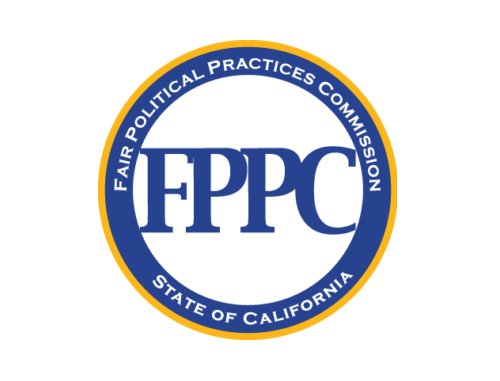
BY SARA TABIN
Daily Post Staff Writer
The California Apartment Association has filed a complaint that claims Mountain View attorney and activist Gary Wesley distributed a political flier that endorsed four City Council candidates but lacked required disclosure information saying who was responsible for the literature.
Not only was Wesley named in the CAA complaint but the four candidates — Lenny Siegel, John Lashlee, Sally Lieber and Alex Nunez.
The candidates say the landlord association is trying to harass them because they support rent control, which was approved by voters in 2016.
Joshua Howard, CCA executive vice president for local public affairs, filed the complaint with the state Fair Political Practices Commission.
Howard claims the flier was distributed in Mountain View apartment houses last weekend.
Howard makes three allegations in his complaint:
• The flier doesn’t contain a disclaimer saying identifying Wesley’s political action committee. Nor does it contain the statement “the advertisement was not authorized by a candidate or a committee controlled by a candidate.”
• “By failing to include the statement that the ad was not authorized by a candidate, one can only assume that Wesley coordinated this flyer as an independent expenditure with the four candidates. Coordination among candidate(s) and an independent effort is expressly prohibited by the Political Reform Act,” said Howard’s complaint to the FPPC.
• The flier, besides promoting the four candidates, also includes a solicitation for the services offered by the Law Foundation of Silicon Valley, and any role they played in the production or delivery of the flier must also be disclosed because they are using political communications to market their own services.
Wesley told the Post that he didn’t work with any candidates on the fliers. He said he spent less than $100 to make the flyers.
Nunez, Siegel and Lieber all denied involvement in the flyers and said the complaint is evidence that the CAA feels threatened in a city where voters approved rent control in 2016.
“While my campaign had no coordination with Mr. Wesley, as alleged in the California Apartment Association’s FPPC complaint, as a renter and City Council candidate, I’ve experienced landlords in Mountain View suppressing renters’ interests by threatening and harassing me for exercising legitimate political speech with their tenants,” said Nunez. “This is yet another CAA attack on our hard-won renter protections and I welcome it as a sign of concern for the Nunez campaign which stands firmly for the defense of renter’s rights.”
Lieber told the Post that she thinks the CAA frequently tries to control the outcome of local elections, which she said is overreach. She said she thinks corporate landlords will continue to cause trouble for local candidates.
“I think it’s really wrong to have that kind of aggressive outreach going on,” she said. “It won’t be the last that we hear from them.”
Siegel said that based on the “flimsiness” of the fliers, he assumes that Wesley was photocopying the fliers himself, and the cost was too low to require Wesley to file state finance forms. But Siegel said Wesley will have to explain that himself.
“Not only did I have nothing to do with (the flier’s) preparation and circulation, but I disagree with his choice of other candidates,” Siegel said in his letter.
Lashlee said he was not involved in the flier. He said he is proud to be in support of rent control.
The FPPC will decide in the next two weeks whether to launch an investigation into the complaint.

The rent control crowd got caught again! It’s not as bad as the time when one of their leaders was caught on video vandalizing a campaign sign, but it shows they’re still up to their old tricks.
Clearly the CAA thinks it can scare people into silence. Hopefully everyone will see this for what it is! Also, it’s John” Lashlee” not “Ashlee.”
Nobody is worried about a $250 fine from the FPPC, or whatever the amount will be. But it’s important to put sleazy tactics like anonymous flyers on record. Why couldn’t Gary simply say on the flyer who paid for it? Aren’t voters owed transparency by campaigners?
As I told this newspaper, the CA Political Reform Act does not require disclosures on door-to-door flyers and could not require them under a 1995 United States Supreme Court case named McIntyre v. Ohio Elections Commission (514 U.S. 334) which is cited in the 2-sided flyer. The flyer could have been anonymous. But anonymous flyers may not be trusted – depending on the topic. The landlord representative cited the absence of disclosures not required as evidence of a “coordinated” piece. The complaint should be rejected by the FPPC shortly.
And when I refer to door-to-door flyers, I mean by persons (or entities) not qualifying as a “committee” under the Political Reform Act. If the political operative who lodged the complaint in this instance had wanted to know if the campaign piece lacked something required, he could have contacted the FPPC for advice. If the operative actually wondered if the piece involved some undisclosed coordination, he could have asked. The flyer has an email address. Candidates have contact information lots of places. But even a piece that details every matter may be disputed by someone who just wants to make accusations.
Gary, if you were able to put an email address on these things, why not a disclosure saying who paid for them? Why is that so difficult? Since when was transparency wrong?
The disclaimer requirements for mailers and some other political “advertisements” apply to “committees” – not to individuals.